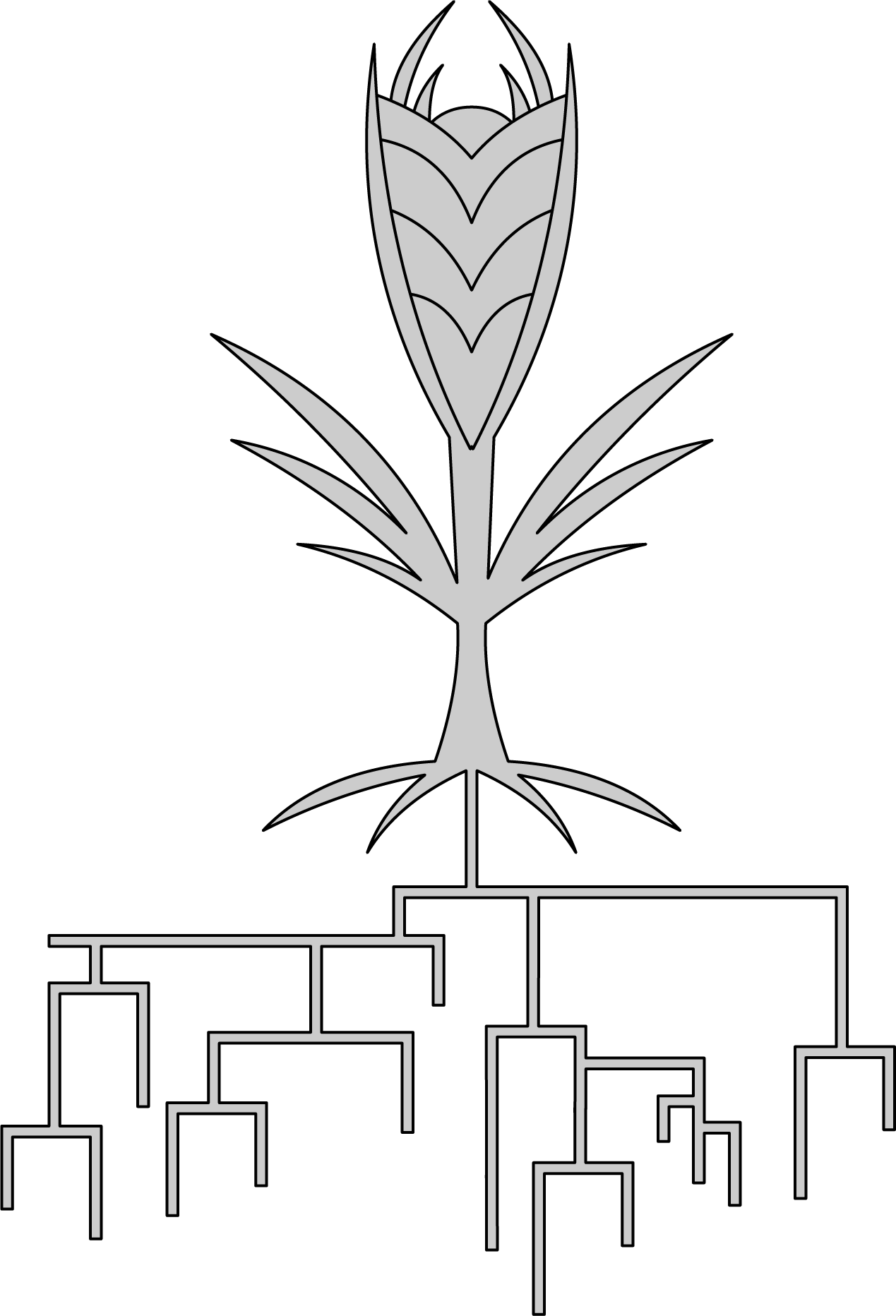Lab Outreach activities
Outreach involving our lab members
- Communication, Literacy & Education for Agricultural Research (CLEAR) established and led by UC Berkeley Faculty Prof Peggy Lemauux https://clear-project.org/
- Berkeley Mycology Club - led by our graduate student Grace Stark
- The Graduates podcast - How Plants Evolve Their Immune Systems - interview with Chandler Sutherland
In February 2024, the Krasileva Lab hosted students from Latitude High School in Fruitvale. Students toured the lab, saw tomatoes expressing the marker gene RUBY, toured the UC Berkeley Bioimaging Facility and attended a science career panel.

Genomes and Plant Health
Krasileva Lab summer workshops for the Undergraduate Researchers and for High School Students.
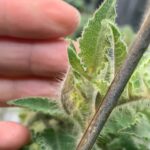
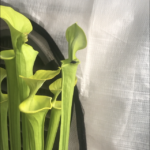

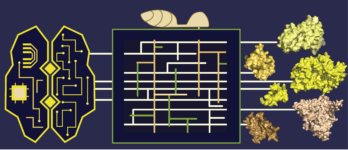
*The images (left to right): A wild tomato Solanum habrochaites that harbors many disease resistance genes. (c) ksenia; A Nepenthes pitcher plant (c) boyan xu; A DNA sequencing device MinION that can operate from USB port in any computer (c) china lunde; A visual representation of computational approach to mine genomic information of plant pathogens and deduce their protein structures (c) kyungyong seong
"Genomes and Plant Health" (in person, UC Berkeley) will give introduction to the following topics:
- Fungal plant pathogens and their implications on our society
- Genomics and computational biology
- Practical skills in DNA extractions, real time sequencing with Oxford Nanopore, biological data analyses
- Genome editing and its application to plant health
- Majoring and performing research in Biology, Data Science and related disciplines.
The course will be delivered in person at the University of California Berkeley. The course will be free to all participants.
Undergraduate Research Students
June 10-11th, 2024
Registration (open until May 24th): link
All undergraduates interested in research skills on this topic.
Workshops are free to all students (lunch provided).
We will need your electronic signature on the video and audio release consent forms. Please, contact us if this is an issue.
Please, contact us (genomesplanthealth@gmail.com) if you need to drop your registration.
In person class size: 30 students
High School Students:
June 12th-13th, 2024
Registration (open until May 24): link
Grades 11-12 only
Workshops are free to all students (lunch provided).
For those under 18, you will need parent's electronic signature on the video and audio release consent forms.
Please, contact us (genomesplanthealth@gmail.com) if you need to drop your registration.
In person class size: 30 students
Teaching and learning resources from "Genomes and Plant Health"
Slides and tutorials
Decoding genomes: DNA extraction, sequencing technologies, genome databases
Lecture and tutorial (by Dr Ksenia Krasileva): Video clip, link to slides
DNA extraction lecture and demo (by China Lunde): Video clip, link to slides
Genome assembly, annotation, and the ins and outs of computational biology
Lecture and coding exercises (Google CoLab, by Pierre Joubert and Boyan Xu): link to slides and Google Colab
From genes to proteins: protein domain architectures and families, structures
Lecture (by Dr Daniil Prigozhin): link to slides
Exercises: link
Genome editing
Lecture and tutorial (by Dr Michael Gomez and Dr Ksenia Krasileva): link to slides
Good microbes, bad microbes: plant microbiomes
Lecture and coding exercise (Google CoLab, by Reena Debray): link to slides and Google Colab
Funding
Our workshops are supported by The National Science Foundation and the United States Department of Agriculture - National Institute of Food and Agriculture.
If you would like to provide additional support, please, contact us at genomesplanthealth@gmail.com or Prof Ksenia Krasileva directly at kseniak@berkeley.edu
2023 instructors
Prof Ksenia Krasileva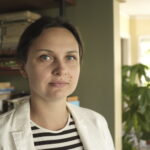 is an Assistant Professor in the Department of Plant and Microbial Biology as well as Innovative Genomics Institute and the Center for Computational Biology, UC Berkeley. She is an expert in plant genomes and genome databases, next generation sequencing technologies and protein family analyses. Ksenia will be present at all course sessions, she will lead the topic "Decoding genomes: DNA extraction, sequencing technologies, genome databases" and co-teach "From genes to proteins: protein domain architectures and families, structures" as well as "Genome editing" in both workshops. You can read more about her research on this website.
is an Assistant Professor in the Department of Plant and Microbial Biology as well as Innovative Genomics Institute and the Center for Computational Biology, UC Berkeley. She is an expert in plant genomes and genome databases, next generation sequencing technologies and protein family analyses. Ksenia will be present at all course sessions, she will lead the topic "Decoding genomes: DNA extraction, sequencing technologies, genome databases" and co-teach "From genes to proteins: protein domain architectures and families, structures" as well as "Genome editing" in both workshops. You can read more about her research on this website.
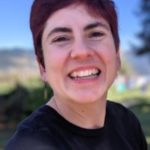 China Lunde Shaw is a Laboratory manager in the Krasileva Lab, UC Berkeley. She is an expert in genetics and genomics, including but not limited to DNA extraction workflows, DNA quality control for sequencing, Oxford Nanopore sequencing. China provides administrative support for the workshops and will co-teach "Decoding genomes: DNA extraction, sequencing technologies, genome databases". China is involved in many research projects described here: link
China Lunde Shaw is a Laboratory manager in the Krasileva Lab, UC Berkeley. She is an expert in genetics and genomics, including but not limited to DNA extraction workflows, DNA quality control for sequencing, Oxford Nanopore sequencing. China provides administrative support for the workshops and will co-teach "Decoding genomes: DNA extraction, sequencing technologies, genome databases". China is involved in many research projects described here: link
 Dr Daniil Prigozhin is a Staff Beam line Scientist at the Advanced Light Source at the Lawrence Berkeley National Laboratory and UC Berkeley. He is an expert in genomics, protein sequence analyses, protein structure analyses. Daniil will lead the topic "From genes to proteins: protein domain architectures and families, structures". You can find more about his research here: link
Dr Daniil Prigozhin is a Staff Beam line Scientist at the Advanced Light Source at the Lawrence Berkeley National Laboratory and UC Berkeley. He is an expert in genomics, protein sequence analyses, protein structure analyses. Daniil will lead the topic "From genes to proteins: protein domain architectures and families, structures". You can find more about his research here: link
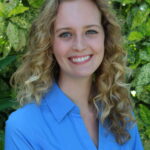
Chandler Sutherland is is a PhD candidate in Plant Biology with Designated Emphasis in Genomics and Computational Biology in the Krasileva Lab, UC Berkeley. She is an expert in genomics, next generation sequencing and sequence analyses. Chandler will lead Genome Sequencing topic with hands on demonstration of Oxford Nanopore sequencing. You can find more information about her research here: link

Kyungyong Seong is a PhD candidate at UC Berkeley and is an expert in genomics, bioinformatics and protein engineering. He studies evolution of genomes the the proteins they encode in both plants and fungi. He is actively incorporating machine learning, such as AlphaFold2 into his work. You can find more information about his research here: link
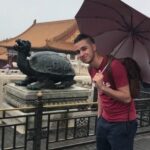 Enrico Calvanese is a second-year PhD student at UC Berkeley. Enrico uses CRISPR technology as a reverse genetics tool to investigate protein degradation pathways in plants. He is mentored by Dr. Yangnan Gu. You can find more information about the Gu lab and Enrico's research here: link
Enrico Calvanese is a second-year PhD student at UC Berkeley. Enrico uses CRISPR technology as a reverse genetics tool to investigate protein degradation pathways in plants. He is mentored by Dr. Yangnan Gu. You can find more information about the Gu lab and Enrico's research here: link
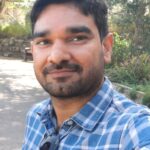
Dr Rakesh Kumar is a senior postdoc and an expert in wheat, disease resistance, biotechnology and gene editing. You can find more information about his work here: link
